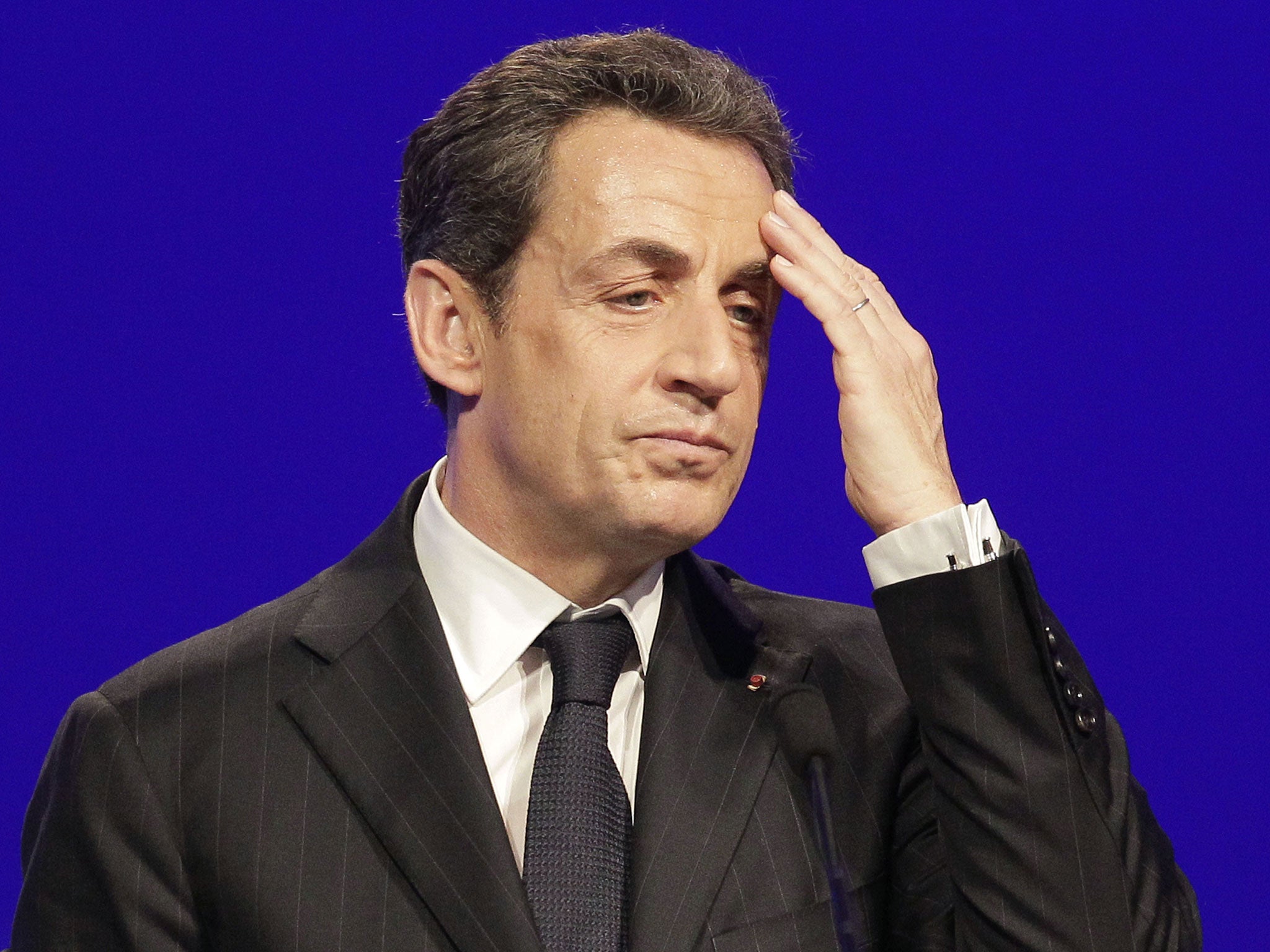Nicolas Sarkozy's plan for political comeback suffers legal blow after court rules accusations of trying to bribe senior judge can go ahead
Mr Sarkozy immediately announced that he would appeal to the highest French court, the Cour de Cassation

Former President Nicolas Sarkozy’s plans for a political come-back has suffered a serious legal blow.
The Paris appeal court ruled that a formal accusation of corruption against Mr Sarkozy for allegedly trying to bribe a senior judge could go ahead.
The former President had challenged the accusation on the grounds that investigating magistrates had broken the law when they tapped his telephone and that of his lawyer in 2013.
The appeal court ruled this morning that the phone taps were justified and legal. A criminal investigation of Mr Sarkozy for “corruption” and “influence peddling”, suspended last October, should resume, the court said.
Mr Sarkozy immediately announced that he would appeal to the highest French court, the Cour de Cassation.
In pictures: Nicolas Sarkozy through the decades
Show all 12Of the tangle of half a dozen investigations in which Mr Sarkozy’s name has appeared since he lost office in 2012, the “bribery” allegation now seems the most likely to lead to criminal charges.
The transcripts of his bugged phone calls have been, widely leaked to the press. They include passages in which Mr Sarkozy and his lawyer, Thierry Harzog, appear to discuss ways of rewarding a senior judge for providing information and influence on other cases against the former president.
One of the mobile phones tapped by the investigating magistrates was obtained by Mr Sarkozy under a false name, “Paul Bismuth”, because, it is alleged, he knew that his other phone was being bugged.
Soon after the formal accusation of corruption was made last July, Mr Sarkozy abandoned his official retirement from politics and ran successfully for the vacant leaderhip of the main French centre-right party. He has asked members to vote later this month to change the party’s name from the Union pour un Mouvement Populaire (UMP) to Les Républicains .
He is favourite to win an open primary of centre-right voters in November next year to choose the main challenger to President François Hollande in the 2017 presidental election. A continuing investigation on the bribery allegations could seriously undermine his support among moderate centre-right voters.
At a hearing before the Paris appeal court in March, Mr Sarkozy’s lawyers said that the whole investigation was politically motivated. They argued that formal accusation of “corruption” brought against Mr Sarkozy in July last year was null and void on on two grounds.
Firstly, the phone taps breached the principle of a confidential relationship between a lawyer and his client, they said. Secondly, the taps had been authorised as part of an investigation into allegations that Mr Sarkozy’s successful 2007 presidential campaign had been financed by the former Libyan dictator, Moammar Gaddafi.
It was irregular, Mr Sarkozy’s lawyers claimed, to use information uncovered by phone taps authorised for one investigation to launch a completely separate case.
These arguments were dismissed by the Paris appeal court today.
Mr Sarkozy has, until now, refused to answer questions from the investigating judges on the contents of his bugged phone calls. Since the taps on the phone calls were themselves illegal, he claimed, he did not have to justify what he may or may not have said.
After he was questioned by magistrates in custody in July last year, he attacked the investigation as a “deliberate attempt to humiliate me publicly”.
The case goes back to the period 2012-3. The Cour de Cassation, the highest French appeal court, was due to rule on whether Mr Sarkozy’s presidential diaries could be used in other investigation against him.
It is alleged that the tapped phone converstions between Mr Sarkozy and his lawyer, Mr Herzog, revealed attempts to obtain influence and information on the internal decision-making process from a senior judge attached to the court, Gilbert Azibert.
In return, Mr Sarkozy appears to agree to use his influence to seek a gilded semi-retirement job for Mr Azibert in Monaco. Finally, the former President is heard to say that he has decided to drop this request.
The investigating judges believe that he got cold feet when he was tipped off that his second phone was also being bugged. Under French law, Mr Sarkozy could be considered guilty of “corruption” even if he did not deliver a promised reward for inside information and influence.
Subscribe to Independent Premium to bookmark this article
Want to bookmark your favourite articles and stories to read or reference later? Start your Independent Premium subscription today.

Join our commenting forum
Join thought-provoking conversations, follow other Independent readers and see their replies